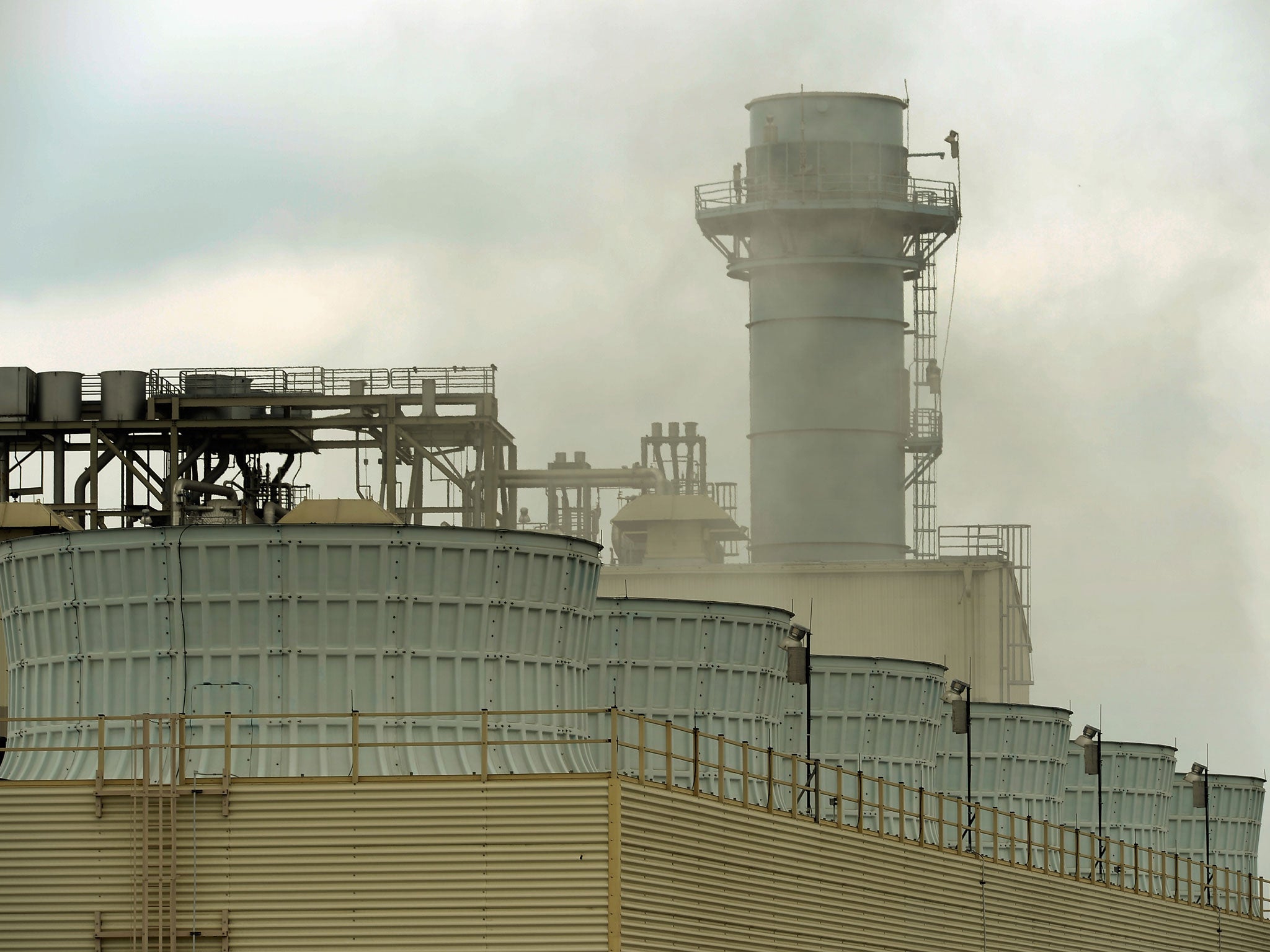Obama administration unveils aggressive push to impose carbon limits on US power plants
Opponents say regulations will 'write off our huge, secure, affordable coal resources'

The Obama administration has unveiled an aggressive push to impose carbon limits on US power plants, proposing strict new regulations that opponents said would “write off our huge, secure, affordable coal resources”.
Gina McCarthy, the administrator of the Environmental Protection Agency (EPA), unveiled the first federal norms in a speech at the National Press Club in Washington, saying: “the overwhelming judgment of science tells us that climate change is real, human activities are fuelling that change, and we must take action to avoid the most devastating consequences. We know this is not just about melting glaciers. Climate change – caused by carbon pollution – is one of the most significant public health threats of our time.”
The proposals call for new natural gas-fired power plants to adhere to a limit of 1,000 pounds of carbon dioxide emissions per megawatt hour. For new coal plants, the proposed limit is 1,100 pounds of carbon dioxide, well below the current average of 1,800 pounds produced by advanced coal plants.
The business lobby immediately slammed the proposed norms, which, though slightly less stringent than an in an initial draft, many say would make it almost impossible to construct new coal power plants in the US.
“It is clear that the EPA is continuing to move forward with a strategy that will write off our huge, secure, affordable coal resources by essentially outlawing the construction of new coal plants,” Bruce Josten of the US Chamber of Commerce said, claiming that the administration had announced rules that “will hamper economic growth and job creation, and could lead to higher costs for American families and business.”
A lawmaker from the President’s own party, Senator Joe Manchin, was also critical. “Today’s announcement... is direct evidence that this administration is trying to hold the coal industry to impossible standards,” the Democratic Senator who represents West Virginia, a state that is home to a large coal industry, said.
He added: “If these regulations go into effect, American jobs will be lost, electricity prices will soar, and economic uncertainty will grow.”
Ms McCarthy’s announcement follows promises in the President’s second term inaugural address that his government would act and “respond to the threat of climate change, knowing that the failure to do so would betray our children and future generations.” He reiterated his position on the issue in a speech in June.
In her remarks yesterday, the EPA administrator stressed that the proposed norms would only apply to new power plants, not existing facilities.
“We know climate change and protecting our kids from harmful pollution can’t be solved overnight,” she said, explaining that the agency would release proposals covering new standards for existing plants for public comment in June, 2014.
“It’s going to take a broad, concerted effort from all levels of government – as well as the international community. But make no mistake about it, EPA’s action today to address carbon pollution from new power plants is an important step forward in our clean energy journey. It’s a necessary step to address a public health challenge that we cannot avoid any longer.”
Join our commenting forum
Join thought-provoking conversations, follow other Independent readers and see their replies
Comments
Bookmark popover
Removed from bookmarks